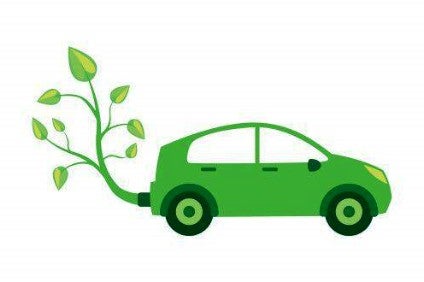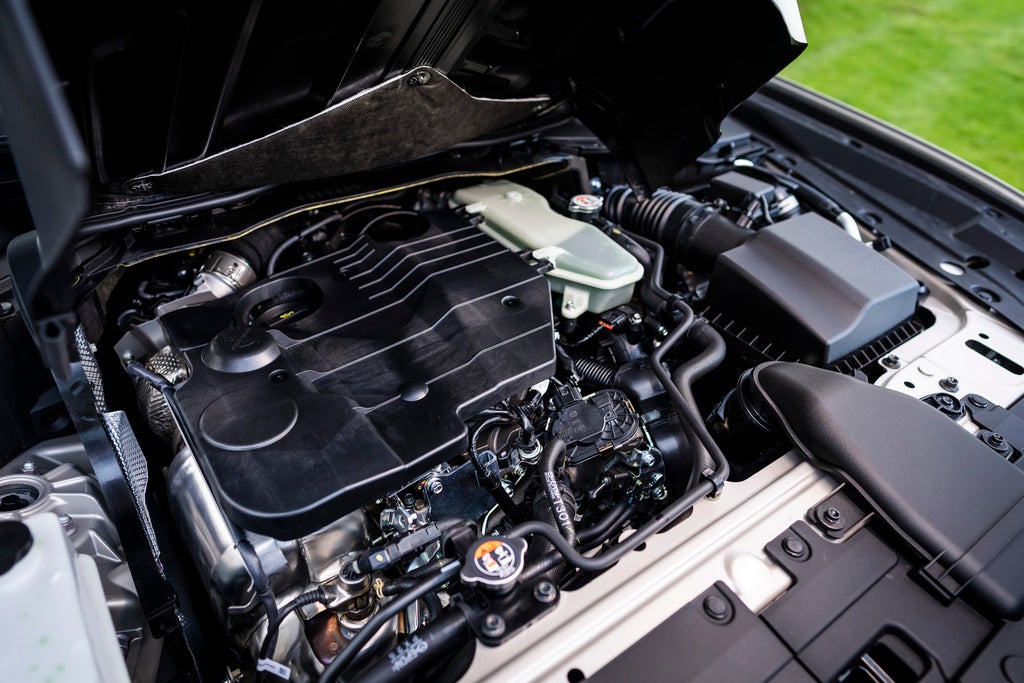
Below-standard targets and weak emissions reporting are leaving automakers open to regulatory penalties and long-lasting reputational damage, GlobalData analyst Carolina Pinto wrote this week. The climate crisis is not a new concern, however, as we get closer and closer to its tipping point, government mandates have overtaken social pressure in the attempt to limit global warming to 1.5°C. We are now entering a new phase where a host of environmental laws relating to mandatory reporting, carbon pricing, and carbon import tariffs have been introduced, forcing industries towards net zero. In the automotive industry, a move towards carbon neutrality has begun, but below-standard targets and weak emissions reporting are leaving automakers open to regulatory penalties and long-lasting reputational damage. Net zero refers to cutting greenhouse gas (GHG) emissions to as close to zero as possible, with any remaining emissions being then ‘offset’ using carbon offsets or credits. Companies typically first aim to achieve net zero operations by reducing their Scope 1 and 2 emissions, then achieve net zero value chains by reducing their Scope 3 emissions. It is important to set reduction targets and emissions reporting protocols to track a company’s performance over time. However, there is little standardisation in emissions disclosure across the auto sector. Companies calculate emissions differently, including and excluding categories of emissions as they see fit.
Europe diesel share
Full-year 2023 GlobalData figures indicate that diesel share of new car sales in the region was just below 16% with December’s result being the same as that of November at 14.4% and very close to what was seen in December 2022, with monthly YoY declines diminishing recently. The slowdown in BEV growth will no doubt have boosted the ICE sector to some degree and perhaps fed into the relatively buoyant end to the year as far as diesel is concerned. All markets ended 2023 with a smaller diesel share than seen in 2022 except one. Our figures indicate that Germany, with a diesel share of 24.4% for 2023 saw a rise from the 2022 value of 23.6%. Diesel demand has held up well in the country, supported by plenty of product from the dominant domestic brands and driving patterns that highlight the value available from diesel versus alternatives very well. We’ve mentioned it before, but it’s worth restating that as well as a slight rise in share, diesel sales in Germany rose YoY in 2023. The actual increase was 68k units which exactly offset the fall seen in France. No other markets saw shifts of this magnitude. Italy, though seeing diesel share fall marginally in 2023, also saw sales rise (by 36k units) contributing to a net regional diesel car sales decline of just 32k units for the year.
EV battery recycling
The electric vehicle (EV) industry is facing emerging challenges in the shape of lithium battery recycling capacity and China announcing that it will limit the export of graphite needed for EV batteries. In light of this, sustainable battery recycling is attracting more attention. Clean recycling innovator, Aqua Metals, says it is pioneering with its sustainable battery recycling process. The company operates what it describes as the first-ever sustainable battery recycling facility and is in the process of developing a commercial-scale ‘recycling campus’. We spoke to David Regan, VP of commercial, Aqua Metals, to learn more about the recycling process and its benefits.
Japan Thai BEV build
How well do you really know your competitors?
Access the most comprehensive Company Profiles on the market, powered by GlobalData. Save hours of research. Gain competitive edge.

Thank you!
Your download email will arrive shortly
Not ready to buy yet? Download a free sample
We are confident about the unique quality of our Company Profiles. However, we want you to make the most beneficial decision for your business, so we offer a free sample that you can download by submitting the below form
By GlobalDataFour Japanese automakers have pledged to invest a combined THB150bn (US$4.3bn) to produce battery electric vehicle (BEVs) in Thailand over the next five years, as they respond to the advancement of the Chinese automotive industry into southeast Asia. Thailand’s prime minister Srettha Thavisin made the announcement after holding meetings with leading executives of Toyota Motor Corporation, Honda Motor Company, Mitsubishi Motors Corporation and Isuzu Motors Ltd during his visit to Japan last month. Thailand wants to play a leading part in the global transition to zero emission vehicles, with the government targeting 30% of the two million or so vehicles produced annually in the country to be mainly battery-powered. Sales of BEVs are estimated to have grown fivefold to 75,000 units last year to account for almost 10% of the country’s domestic vehicle market, making Thailand by far the largest BEV market in South-east Asia – more than twice the size of the region’s largest automotive market which is Indonesia. BEV sales growth has been driven mainly by the recent entry of Chinese automakers such as BYD, Changan Auto, Geely, Great Wall Motors, SAIC Motor and Chery Auto, which together accounted for over 80% of segment sales last year. BYD claimed the largest share, with its Atto 3 model alone accounting for almost one-third of segment sales. The Japanese are suddenly left playing catchup in a market they have dominated for many decades.
Grim news for Wales
The owner of the Port Talbot steelworks has confirmed earlier reports the plant’s two blast furnaces would shut down, in what unions have described as an “absolute disgrace” that will cost up to 2,800 jobs directly and many more in the south Wales community. Parent company, the Indian owned Tata Steel, said it was not “feasible or affordable” to adopt trade union proposals to continue production at the loss making plant during a transition to greener, cheaper steelmaking operations, The Guardian reported. On Friday, after trading on the stock exchange ended in Mumbai, Tata officially confirmed its plans which would result in most of the plant’s 4,000 workers losing their jobs. About 200 positions would be saved by maintaining operations at the site’s hot strip mill, which rolls steel slab. The closure, together with similar proposals at the Chinese owned British Steel plant in Scunthorpe, was set to leave the UK as the only G20 economy without the ability to make steel from scratch, known as virgin steel.
Hyundai locks in lithium
Hyundai Motor Group (HMG) this week signed an agreement to purchase lithium hydroxide for its electric vehicle (EV) batteries from China’s Ganfeng Lithium Group, a company estimated to be the world’s largest global producer of lithium. The deal was effective immediately and intended to provide the automaker with a stable supply of raw materials as it looks to ramp up global output for battery electric vehicles (BEVs) over the next few years. Details of the deal were not disclosed, including volume and the length of the contract. This was the second direct lithium supply contract signed by HMG this year after last week’s contract to source lithium hydroxide from Shenzhen Chengxin Lithium Group over the next four years. Until recently, lithium supply deals have normally been signed by battery manufacturers and these two contracts are Hyundai Motor Group’s first to be signed directly with lithium suppliers. Lithium prices last year plunged to their lowest level since 2021 and the automaker was locking in prices to protect itself from future price spikes.
You win some….
BYD Auto has officially entered the Indonesian market with three electric vehicle models as it continues its expansion into global markets. PT BYD Motor Indonesia, the Shenzhen-based automaker’s local subsidiary, introduced the Seal, Atto 3 and Dolphin in Jakarta. It already has seven dealers and plans to increase to 50 by the end of the year. Eagle Zhao, president director of BYD Motor Indonesia, revealed plans to build a factory, saying: “We will accelerate the construction of a manufacturing plant in Indonesia starting this year.” Coordinating minister for economic affairs, Airlangga Hartarto said BYD had committed “to investing (IDR20trn) US$1.3bn in a plant with a production capacity of 150,000 vehicles. I hope this will strengthen the era of the electric vehicle in Indonesia”.
….and some
GWM has built its first Ora 03 in Thailand, claiming this is the first time a Chinese OEM has mass produced an EV outside China. S-Volt, a GWM Holdings group company, is the primary battery supplier for the Thai Ora. Thai production will require 60,000 battery packs. The Thai plant has already built hybrid models and about 10,000 imported Ora models have already been sold
…..and lose some
Kia looks to have shelved plans to build a 250,000 unit/year vehicle assembly plant in Thailand’s Rayong province with reports suggesting it had failed to reach agreement with the Thai Board of Investment (BoI) on government incentives. But Kia Corporation plans to launch a new subsidiary company in Thailand at the end of January focused on importing and marketing vehicles in south east Asia’s second-largest vehicle market. Hyundai Motor Group already has a direct presence in Thailand through the Hyundai brand with local sales last year estimated at around 3,500 units, mainly Staria minibuses as well as Creta compact SUVs and Stargazer compact MPVs. Kia sales so far have been carried out by a local importer and distributor with around 1,000 Bongo trucks and Carnival MPVs combined estimated to have been sold in 2023. The new subsidiary was expected to focus more on battery electric vehicles (BEVs).
SK On & Solid Power
SK On said at the Consumer Electronics Show (CES) in Last Vegas it had agreed to strengthen its partnership with Solid Power, a US based developer of solid state battery technology. SK On originally invested US$30m in Solid Power in 2021 with a view to jointly developing all solid state batteries (ASSBs). SK On said it had signed a new research and development technology licence agreement with Solid Power to help accelerate the development of ASSBs. Under the agreement, SK On will have the right to use Solid Power’s technology for ASSB cell design and pilot production processes for research and development purposes.
OK lithium
Oklahoma is set to become the home of the US’ largest battery grade lithium refinery to supply the EV industry. Lithium producer Stardust Power said it had chosen Southside Industrial Park in Muskogee. The estimated production capacity is up to 50,000 metric tonnes annually. The firm expects to be eligible to receive up to US$257m in state and federal economic incentives for the plant.
Posco cores for HMG Europe
Posco International, a unit of South Korea’s largest steel maker POSCO Group, said it had signed an agreement to supply 1m electric vehicle (EV) motor cores to Hyundai Motor Group in Europe between 2025 and 2034. Posco will supply the motor cores directly to the Hyundai Mobis plant in Gbelany, Slovakia, where they will be assembled into EV drive modules. Of these, 550,000 will be shipped to Hyundai’s vehicle assembly plant in Turkey and 480,000 to Kia’s factory in Slovakia. The motor cores will be produced at a yet to be built Posco facility near Brzeg in southern Poland where it will have easy access to key European manufacturing centres including Germany, Hungary, the Czech Republic and Slovakia. Construction of the plant is set to begin in coming months with completion scheduled for early 2025.
Huawei eyes auto
Chinese telecoms equipment giant Huawei Technologies continued to strengthen its focus on new auto technology with the establishment of a new company encompassing its autonomous driving and connected technology operations, according to local reports citing data from a business registry. The new company, Shenzhen Yinwang Intelligent Technology, was established this week with a registered capital of CNY1bn (US$140m) and is a wholly owned subsidiary of Huawei Technologies. Registration data shows the business is licensed to operate in AI software development, smart car equipment manufacturing and systems integration services and among other areas. Huawei plans to leverage its in house artificial intelligence (AI) and telecom technologies to play a key role in the next generation smart car industry.
ICE peak
The demand for internal combustion engine (ICE) vehicles has experienced its peak, according to industry experts, making way for the electric vehicle (EV) market, which looks set to grow in line with the developing battery market. However, the industry will be constrained by the limited availability of charging stations and slow installation processes. The shift away from ICEs is already firmly underway, with the EV market experiencing massive international growth. Confused.com car insurance compared the annual change in EV sales since 2017 globally, noting the top ten countries have all seen growth rates of over 100%. Brazil topped the list with a 285.5% annual growth in EV sales, while Israel and India followed with 281.8% and 183.4%, respectively. David Leah, senior analyst at GlobalData’s powertrain team, considered this market shift towards EVs: “It’s not going to happen overnight and there remain a number of risks that could slow the transition down. That said, considering external and industry trends, the shift to zero-emission vehicles seems inevitable.”
BMW agrees
BMW has passed the tipping point for combustion engine vehicle sales and now generates most sales growth from electric cars, its chief financial officer has said. “The tipping point for the combustion engine is already there,” CFO Walter Mertl said, according to Reuters, adding that in his view it had been passed last year. “The current sales plateau for combustion cars will continue and then fall slightly,” he predicted, pointing to looming environmental regulation that will restrict sales of such vehicles.
Stellantis Sixt sale
Rental car operator Sixt and Stellantis have reached a multi billion euro agreement which could add up to 250,000 vehicles to the fleet in Europe and North America over the next three years. First deliveries will take place in this first quarter of 2024 and continue throughout the year. Brands include Alfa Romeo, Chrysler, Citroen, Dodge, DS Automobiles, Fiat, Jeep, and Maserati.
Have a nice weekend.
Graeme Roberts, Deputy Editor, Just Auto




